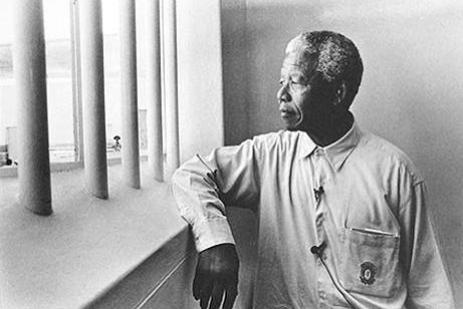Make no mistake. Behind the African hunt, which has become a seasonal sport in South Africa, Mandela’s legacy is being burned. Ubuntu is for the postcard. The reality is quite different, as the thousands of businessmen who attended the World Economic Forum in Cape Town, a city of jet-setters and privileged people on the waterfront, in the middle of a Ocean of misery where life is not worth a smartphone.
The slogan of “Rainbow Country”, this Rainbow Nation that was to erect on the rubble of apartheid, rings hollow today in the streets of Johannesburg and Pretoria where extreme poverty rubs extreme wealth . On the one hand the futurist Sandton, “the richest kilometer of Africa” as we call it, all shame drunk. This place of organization of international forums including the upcoming African Development Bank “Invest in Africa” is the scarlet window of an extremely rich country that has turned its back on the rest of the country and the poor Alexandra, a new Wild West or, rather, a Calcutta in augmented reality. Five kilometers separate these two areas of Johannesburg. Suffice to say a chasm of inequalities, frustrations distended by the weight of history.
It could not be otherwise. The most unequal country in the world (by its Gini coefficient of 63 against a continental average of 45 and a world average of 38) is also the most violent and, we can see, the most xenophobic. The violence of recent days is the cry of anger of a black mass illiterate in its majority, family cells destroyed since apartheid, outclassed by a more enterprising African immigration.

It must be said that the South African majority saw only the mirages of a Black Economic Empowerment (BEE) program that ultimately produced billionaires like Cyril Ramaphosa, the current president, who has his juicy mines , and promoted leading puppets like Jacob Zumba who have finished extinguishing the last ray of hope of a legacy that also carries the ideals of Walter Sisulu and Steve Beko aka Bantu Stephen Biko. A universal fight for, by taking again the definition of Nelson Mandela, “the liberation of the man”, which would not have triumphed without the decisive help of all the African continent including Nigeria and all the countries of the line of forehead.
Collective amnesia? One can not blame the man of the street for having forgotten this decisive solidarity but one can, without striking a blow, to reproach to an elite without dream and without ideal of having sacrificed the revolutionary ideal which would release the South Africa politically, economically and socially. What will remain of the dream of African unity and integration after these terrible scenes of hunting man? What about the slim hope created by the recent adoption of the Continental Free Trade Area (FTAA) in Niamey?
After twenty five years of ANC government, disillusionment is great for the rest of the continent who thought he finally found his locomotive, China that would make him what the Middle Kingdom and before him, Japan, both followers of the theory of the flight of wild geese by economist Kaname Akamatsu, have made of Southeast Asia.
Monopoly of anti-African racism in Africa
South Africa does not assume its leadership of the continent’s leading economy nor its role as a catalyst for emergence. The immense Mandela does not yet have a successor worthy of his struggle and his complete humanism, against, he said, the domination of the white man but also against the domination of the black man. The late reactions of South African leaders show at least that their indignation is largely undermined.
That said, it would be counter-productive to trigger, as some Nigerians suggest, a boycott of Nigerian brands (MTN, Shoprite). It would be largely unaware that South Africa does not have a monopoly on anti-African racism in Africa. In most countries of the continent, the presence of Africans is tolerated but not administratively accepted. Who would have thought that Robert Mugabe’s Zimbabwe makes it easier for a European to obtain a visa than an African?
We write it to our body, the cases of Sibeth Ndiaye in France and Barack Obama in the USA will not arrive anytime soon in a continent where the nationality codes are denominated on the origin, the blood, the ethnic group or the elected group, and not on the feeling of wanting to live together. It is time to hold the Estates General on African integration and on the meaning of nationality, the right of citizenship, residence and establishment in Africa. Otherwise, we condemn ourselves to such violence that slowly kills this dear pan-Africanism that shines in each of us and we must not let it go out.



